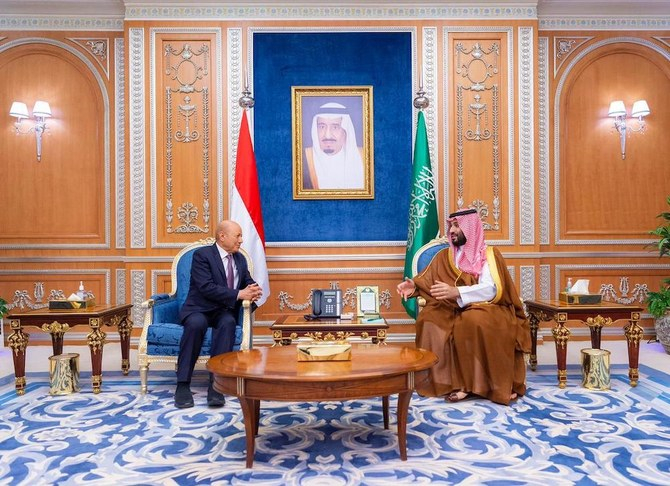In a televised address on Thursday (7 April), Yemeni President Abd Rabbo Mansour Hadi relinquished his powers today and announced the formation of a new Presidential Leadership Council. Hadi, who had led Yemen through one of its most turbulent times, said the Council was established to complete the implementation of the transition phase and will have the authority to negotiate with the Iran-backed Houthi militia to end the war.
Vice President Ali Mohsen Al-Ahmar, part of the powerful Al-Ahmar clan and a supporter of the 2011 protests was also relieved of his duties and the responsibilities of the post were reassigned to the new council.
The new presidential leadership council is an eight-member body led by Rashad Al-Alimi and has the authority to manage the state politically, militarily and on the security front. The council will be supported by a 50-member consultative body. These members will share the title of ‘Deputy Chairman of the Presidential Leadership’ and are further supported by separate legal and economic teams. The council will end its term upon election of a new president.
Members of the Council are: Sultan Ali al-Arada (governer of Marib), Tariq Muhammad Salih (Leader of the National Resistance), Abed al-Rahman Abu Zara’a (Founder and leader of the Giant Brigades and a Southern activist), Abdullah al-Alimi Bawazeer (Government official), Othman Hussein Megali (Parliamentarian), Aidarous Qassem al-Zubaidi (Leader of the STC), and Faraj Salmin al-Bahsani (Governer of Hadramut)
Leaders across the Arab World and the Middle East have welcomed the establishment of the Presidential Leadership Council in Yemen.
Al-Alimi is a key Yemeni figure who served as an advisor to Hadi and held multiple positions in previous governments including as deputy prime minister and minister of interior. Following the announcement, he met Saudi Crown Prince Mohammed bin Salman and the latter affirmed the Kingdom's support for the Yemeni Presidential Leadership Council and its aspiration that its establishment would contribute to the beginning of a new page in Yemen that would move it from war to peace and development, expressing his hope that the next stage would be different.

Saudi Arabia and UAE have pledged $3 billion worth of aid for Yemen.The money will include a $2 billion support for the Yemeni central bank, offered jointly by Saudi Arabia and the UAE.The remaining $1 billion from Saudi Arabia will be broken down to $600 million for the purchase of oil derivatives, and $400 million to support development projects and initiatives.
A further $300 million from the Kingdom has been pledged to fund the humanitarian response plan announced by the UN in 2022 to alleviate the suffering of the Yemeni people and improve their living conditions.
The Riyadh consultation involving Yemeni factions are expected to conclude today but there are still no confirmed outcomes from the dialogue. The country is also currently in a truce since the beginning of the week. UN Envoy Hans Grundberg said on Wednesday (6 April) that the current truce between warring factions has led to a rare and significant reduction of hostilities, despite reports about the mobilization of forces and violations mainly around Marib.






